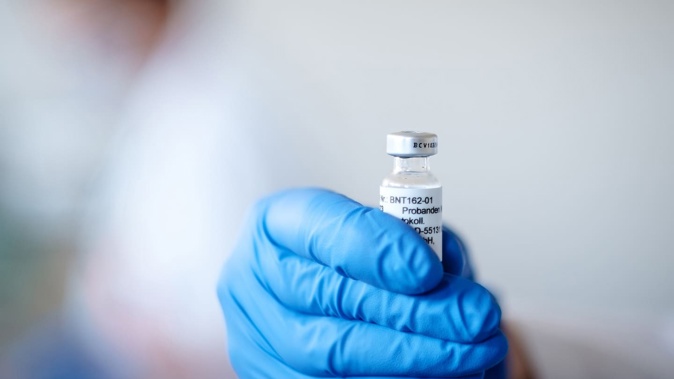
Health data from five million Kiwis has shown how vaccines give us a just short-term boost against catching Covid-19 – but a much longer one for keeping us out of hospital.
The findings, published today in the New Zealand Medical Journal, mirror what other studies around the world have found about the vaccine’s effectiveness against an ever-evolving coronavirus.
The data, from late 2020 to early 2023, was based on health outcomes for some 5.3 million people, of whom 82% and 79% received the first and second doses respectively, while 52% and 14% got the first and second boosters.
A further 18% didn’t receive any vaccinations during the period.
Study co-author Dr James Mbinta said the vaccine was most effective at blocking infection and reducing hospital admissions in the first month after being given.
“For example, the initial booster shot reduced hospital admissions by 81% in the first month after it was administered,” said Mbinta, of Victoria University’s School of Health.
After six months, that effectiveness fell to around 57%.
“Similarly, the second booster reduced hospitalisations by 81.8% in the first month – by month six, this figure had dropped to 49%.”
 More than 90% of the eligible population received the first Covid-19 vaccine during a nationwide drive amid the pandemic. Photo / Bevan Conley
More than 90% of the eligible population received the first Covid-19 vaccine during a nationwide drive amid the pandemic. Photo / Bevan Conley
The drop in stopping infection was sharper still, going from 57% at the one-month mark, to about 10% after six months.
Importantly, however, the drop in preventing death from Covid-19 was small: the first booster was shown to be about 93% effective at doing so for two months – and five or six months later, that protection had only fallen to about 87.2%.
“Our findings suggest vaccination provides longer-term protection against hospitalisation and dying from Covid-19, and shorter-term protection against infection,” study co-author Professor Colin Simpson said.
Simpson added that more research would be needed to assess vaccine effectiveness beyond the six-month periods they analysed, and also that of future doses.
The study comes as figures show most of the under-65 population eligible for free second boosters – including around eight in 10 people in their 30s and 40s – haven’t bothered to get one.
Fortunately, uptake was much higher among our over-65s, of whom nearly three-quarters have received the second booster – and who continued to make up the bulk of Covid-attributed hospitalisations and deaths.
Experts say boosting remains especially important for older Kiwis and other at-risk groups like immuno-compromised people, as the antibody top-ups they get from the vaccine wanes markedly faster.
Jamie Morton is a specialist in science and environmental reporting. He joined the Herald in 2011 and writes about everything from conservation and climate change to natural hazards and new technology.
Take your Radio, Podcasts and Music with you









